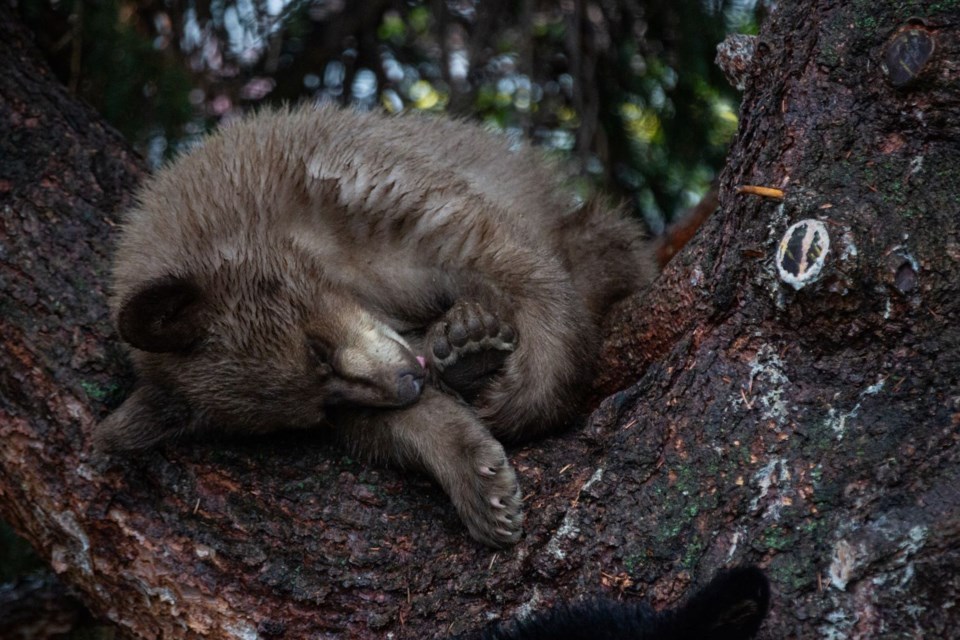Scott Hayes | [email protected]
Local Journalism Initiative Reporter
Parks Canada has euthanized a black bear cub after it sustained a serious injury and was subsequently abandoned.
The bear was part of a well-known family of a mama and three cubs that have been frequenting the Jasper townsite over the summer.
Sometime on either Sept. 7 or 8, the cub lost a hind leg due to a severe injury. It was spotted with its family on Sept. 9, but it was reported alone outside of town two days later.
Parks Canada wildlife specialists determined that it was extremely unlikely that it would survive on its own. They made the difficult decision to capture, sedate and humanely euthanize the cub.
The exact source of the cub's leg injury is unknown, said Dave Argument, resource conservation manager with Jasper National Park.
"It's hard to be 100 per cent certain, of course. There was no direct observation of the actual occurrence, but the nature of the injury (when we are able to capture that bear) is consistent with what we'd expect to see from a railroad injury: a fairly clean severing of the bones and tissue."
There are still approximately 10 bears frequenting the townsite. Another yearling male was trapped and relocated last week. That was a week after another mom and cub were relocated after a well-publicized incident involving a group of young women approaching them as they were feeding in trees on Miette Avenue around 3 a.m.
A tracking device on that mother bear shows that it has traveled nearly 250 kilometres into Robson Provincial Park since its release, and most of that distance was in the first few days.
"I think that's just illustrative of the stress that we cause these animals when we relocate them for her to undertake such long-distance movements, potentially with that cub in tow,” Argument said.
“We hope that the cub is still with her, but with those sorts of long-distance movements, that's pretty exhausting for a bear at this time of year when they're trying to get ready for winter."
Parks Canada is taking this opportunity to remind people to do their part by removing fruit from their trees, putting barriers in place so that bears can't access those trees, or by removing the trees themselves.
Because the bears are seeking food, they are exposed to a higher risk of danger because of interactions with people and vehicles.
"There's still a lot of fruit on some of those trees, and the bears are getting closer to hibernation with each passing day. They have more and more motivation to really seek those calories before the season gets too far along," Argument said.
"It's not just about the safety of humans in this town, which is certainly a top concern for us. That's the driving reason why we want to try to reduce the attractants in the town site and keep bears out of town. It's also for the good of these bears as well."
He added that the mother bear of the recently euthanized cub has raised at least three successive seasons of cubs to forage for berries in the townsite's trees.
Those animals will all continue to explore the fruit that is available from year to year, despite the risks that proximity to humans and their vehicles brings.
All bear sightings must be reported to Parks Canada Dispatch by calling 780-852-6155.




